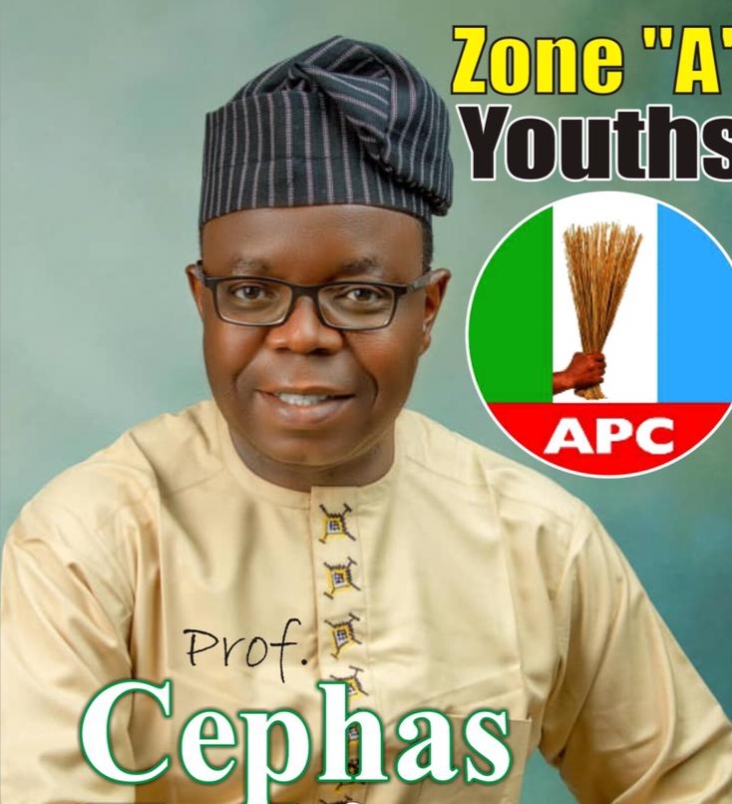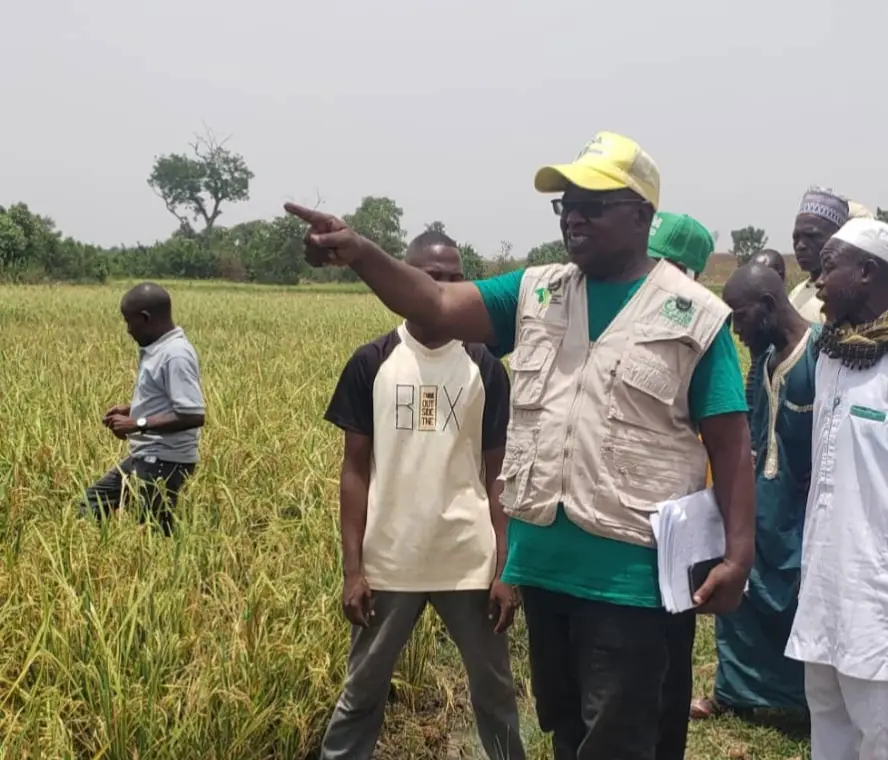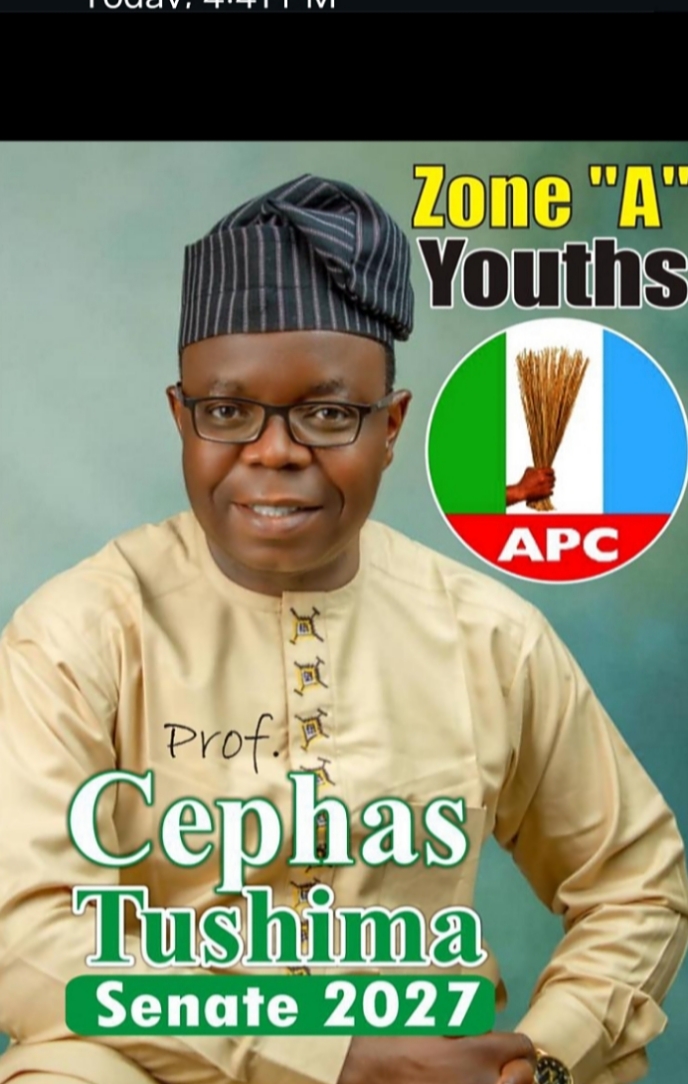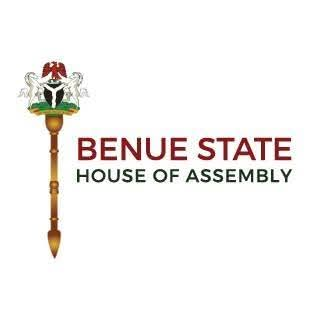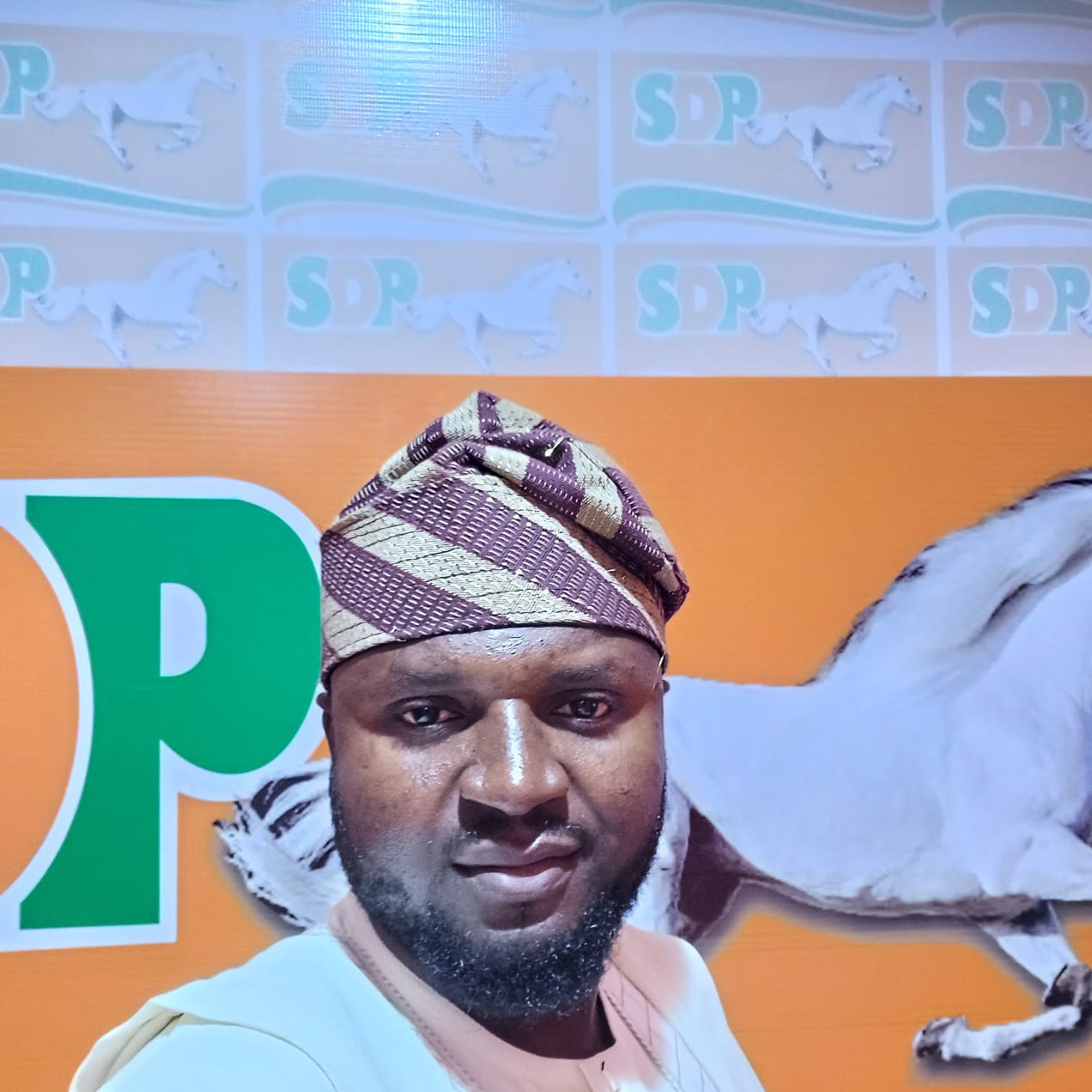Prof Tushima is a renowned scholar, innovator, a bridge builder and critical thinker. He is a man with deep passion for service and the transformation of society and floats an NGO dedicated wholly for human capital development. He is currently engaging in consultations to contest the North East Senatorial seat of Benue State come 2027. The Voice Politics, engaged him on issues relating to this aspiration.
Excerpts.
The Voice Politics understands that you are making consultations to contest the Benue North East Senatorial seat come 2027; what has informed this interest?
That is a very important question. For me, I have looked at Zone A as a zone that has not been represented adequately over the years. It is a zone that has a lot of potentials in every respect. Look at the human capital of Zone A, it is perhaps the richest zone in Benue State, in terms of the caliber of people, education-wise and professionally too. Even when you are looking for indigenous business people of repute, most of them would come from Zone A. If you consider the natural endowment in terms of agricultural produce, Zone A produces almost every crop for which Benue is renowned. Again, with respect to solid mineral endowments, Zone A is richly blessed, even though it is only a fraction of it that is currently being extracted in Logo and Kwande LGAs. As at now, not much of these endowments are been harnessed in ways that will bring about the development and the much desired transformation of the Zone.
A telling case in point of the underdevelopment of Zone A is in the educational sector, my own specialty. Zone A has probably the highest population out of the three zones of Benue State, and undoubtedly has the highest number of professors, yet, the only tertiary institution currently existing there is one that was established more than 50 years ago by the first civilian governor of Benue State, His Excellency Gov. Aper Aku, of blessed memory, to wit, the Katsina-Ala College of Education. No other tertiary institution has been established in the Zone. It is only now that our incumbent governor, His Excellency Rev. Fr. Dr. Hyacinth Alia, who also hails from the Zone, is making the efforts to establish a university within the Zone. Comparatively, Zone B has three universities, three polytechnics, two schools of nursing, at least three colleges of health technology, and two tertiary health institutions (these bestride both the health and education sectors). The same pattern obtains in Zone C, which has a university, a teaching hospital, two colleges of education, and at least one polytechnic.
The above goes to underscore my point that Zone A has not been adequately represented over the years. Its potentials are untapped or not being tapped in a way that would impact on its local economy. And so it is some of these things that have stimulated my desire to step out and offer the kind of representation that would be effective in fully catering for the needs of the Zone. As a Senator, you are first of all a Senator of the Federal Republic of Nigeria. Therefore, the concern for the nation to be run properly, and as such working on legislative agendas and carrying out oversight function with respect to extant laws in ways that enhance national unity and cohesion, addressing conflicts of competence and interests, the proper functioning of our government (with respect to its primary responsibility of providing for the security of life and property as well as the well-being of the citizenry, and true nationalism and patriotism); should be paramount. But more importantly, one is to represent one’s own constituency. Therefore, my desire is to offer effective representation of my own people of Zone A in such in a way as to usher in a new era of transformation that will be reflected in unprecedented rural development, youth empowerment, and offer equal opportunities for our teeming population.
What is the assurance that you will change this narrative since others have promised but failed?
Well, there are a lot of things that will make my case different. For one, a lot of people get into positions of leadership without adequate preparations and without understanding the essence of public leadership. Public leadership is about service. Most people who occupy those positions, and I’m saying this without referring to any particular person, don’t go there with the idea of primarily serving the people.They go there with the idea of bettering their lives. This is why I often say many go to the National Assembly to make money not laws. A classical example comes from the beginning of the Fourth Republic, when Obasanjo was president, Dr. Chuba Okadigbo was the President of the Senate. The then Senate President was leading the campaign in seeking for fat salaries for the National Assembly members, and Obasanjo was pushing back seriously. In one of the media interviews Dr. Okadigbo offered, he was quoted as saying the National Assembly members had not come to Abuja to display poverty. I was horrified by that statement. That statement is indicative of the mentality of assuming a position in government which is not primarily about serving the people, rather the aim is to transform one’s economic fortunes overnight, and it is totally wrong. I do not say this flippantly to disparage the institution into which I aspire to be voted. But I say in consideration of the intentions of the people who end up there, whose utterances and actions betray the fact that their concerns for self-interest is paramount over the concern for the welfare of the people they are supposed to serve.
I believe my case will be different for several reasons. First, it is my own pedigree; I have been enriched by the unique benefit of trans-generational home-based knowledge facilitation and mentoring. My grandfather was one of the first chiefs in Tivland. Therefore, I grew up under a discipline-conscious Tiv culture, in which service to the people was overriding, and I imbibed those ethos regarding public service from my grandparents, their generation, and my parents’ generation. Second, I have been in the public service as a civil servant in the 80s and 90s when, again, public service was held up as giving your best for the nation. Third, from public service I moved into missions, just like our governor, His Excellency, Rev. Fr. Dr. Hyacinth Alia, who also came from that background into public service. I have served in missions abroad and in Nigeria for decades. The hallmark of service in missions is self-effacing sacrifice for others, following the example of our Saviour, Jesus Christ, who died that we might have life. Fourth, my service in mission was in the field of education (teaching primarily in tertiary institutions). Again, in education you are giving yourself to improve the lot of others. The sacrificial undertone of a teacher’s life is encapsulated in the age old cliche, “A teacher’s reward is in heaven.” We missionary teachers naturally use our meagre income to support indigent students: Rather than seek to make money out of students, we help better their lives at our expense. Our orientation is different. This mission orientation accounts for the huge impact our Governor has made within just two years. Therefore, the ethics and ethos of the same mission background, entrenched in self-sacrifice for the benefit of others, will be my guiding light and lead me to effective service to the people. So, definitely I am coming from a different angle than that of an average politician. In addition, I personally have had long standing interest in leadership development, having been in leadership from my childhood, and I had nothing to guide me but I had to learn how to lead the hard way. I thought we could do something different, so I became involved with a non-profit corporation that I helped found for several years, which is focused on human capital development. Since 2011, we have been providing leadership training programs for young adults in the North Central region. Our flagship program has been THE EMERGING LEADERS COURSE, through which we have trained hundreds of young people, stimulating them to develop life skills for navigating the path of life with purposefulness, vision, dignity, and integrity in ways that will bring about wholesome and transformative influence on their communities. Going to the senate will be a higher platform and golden opportunity for me to demonstrate what I have been teaching and living on a smaller, hoping that peradventure, my success story will become a model for others to follow.
If you are given this mandate, what would you do to push the issue of herdsmen killings in your Zone backwards?
There are a number of things that impact on insecurity. One of the major things we face in Benue State is the problem of lack of boundary demarcation, especially the boundaries with other states, which have not been demarcated. I have been trained as a surveyor. I worked with the Benue State government as a surveyor for several years. And I know what our boundary situation is. It will be a priority for me to work with the Governor to impress it on the National Boundaries Commission to move swiftly to demarcate the boundary between Benue and Taraba. So, this will be centre-piece of my work towards unraveling the security situation that we face today, knowing that if we can address our boundary issue adequately, then we will be able to work with the federal government to station security personnel at out boundary perimeters to secure out people. Let us make no mistakes, the perennial insecurity problems we face are not unrelated to the land grabbing agenda of prominent individuals, who are sworn enemies of the Tiv people.
Two, we will need to ensure the proper extraction of our mineral resources so that they do not become an albatross to our communities. It is common knowledge that mineral exploitation, when not handled properly has the tendency of either breeding or perpetuating insecurity. So, we will need to ensure that the presence of the huge deposit of mineral resource in Benue state does not feed into the narrative. We have seen these examples in such countries as Sierra Leon, Liberia, and the Congo. I desire for us to be proactive not reactionary.
Three, we will work to develop a good rapport with leadership of the security outfits to ensure that deployment of troops is not counterproductive to the purpose of their deployment. A central African proverb says, “A monkey should not adjudicate in the affairs of the forest.” Very often the personnel deployed to address security challenges look like monkeys sent to adjudicate in the disputes in the forest between monkeys and squirrels. In that situation, you know exactly where the scales would tilt. Such situations must be nipped in the bud. Not only that, more often than not, the welfare of these troops is not adequately catered to, makes them easily susceptible to being compromised. These are things to which I will give careful attention.
Four, the lack of synergy between the state government and our delegation to the National Assembly has been our Achilles’ heel as far as the security challenges are concerned. When you have National Assembly members who are gleefully waiting to see their state governor fail, they would not be in a hurry to do anything to improve on the security situation of the state. It will be my top priority, when I am in the senate, to ensure that myself and other members of the Benue delegation to the National Assembly adopt a “Benue First” approach to legislative activism and advocacy. This invariably will require that we work in sync with the chief executive of state. Together we will attain great heights for our people.
Five, we need to establish the presence of security agents closer to the people. The land mass of Zone A is huge. It is difficult for a small unit of officers deployed, say, in Jato-Aka to move rapidly to Abande to handle security there, or for them to easily cross to disperse marauders in Ikyoaven across the Katsina-Ala River. As a Senator representing Zone A, I will work in tandem with the Governor to have outposts of the various security outfits sited throughout Benue State, especially at the border areas to cut off any attempt to attack our people as quickly as possible. I will also ensure that the welfare package for serving officers and men of security agencies on these special assignments are released to them to boost their morales for effective service.
I will work to move the creation of police force from the exclusive list to the concurrent list of the constitution of the Federal Republic of Nigeria. Debates over the formation of state police outfits has been on for a long time, without any concrete action taken on it. This requires a constitutional amendment, and I am willing to work with others in the National Assembly to bring this about. But as we know, the security architecture in Nigeria is fully in the hands of the federal government, technically they do not take instruction from the governor of a state. Thus, it has become a necessity for the state governments to be given the legal rights to form state police that will be armed. This will certainly improve on the low level of the ratio of a Police/1000 citizens. Such a step will empower the state governments to protect their people from the marauding Fulani herdsmen.
As a Senator, I will work with other legislators to pass a law authorizing community severance and protection groups. This law will empower communities to own and bear the right kind of arms to defend themselves if attacked by others. The law will offer guidance on the possession and use of such fire arms in the communities, in order to curtail unnecessary bloodletting, but offer much needed protection for the locals.
Many people are of the opinion that you are pushed by the state government to dislodge the incumbent who is obviously working at variance with the interests of the governor of Benue How true is this?
Well, anybody who is pushing that narrative is just being mischievous. Yes, I am part of the divine mandate movement (have been a key figure in the movement, especially, the Plateau State chapter early in the life of the movement). However, nobody in the movement has told me to come out and contest for the Senate. It is a personal choice occasioned by the suppression and marginalization of my people for a very long time. Besides, the incumbent needs to be a man of honor. A couple of years ago, President Obama was asked about issues relating to the underdevelopment of Africa and he made a simple but profound statement to this effect, that Africa will never develop until African leaders learn that words matter. That is a very powerful statement. People make statements of intentions without following through on what they said. It is on record that Sen. Udende, when he came to plead with the people to allow him to go to the Senate in 2023, he signed a contract with the people on the Ushongo mountains, promising to serve only one term and allow a Kwande person to take over. He needs to be a man of honour and keep his word.
Do you see the All Progressives Congress as the ideal party against the PDP in terms of performance especially with the current spate of killings in Benue and the country in general?
Well, problems that have festered for a long time also take a longer time to tackle. You will agree with me that the whole phenomena of insecurity (what would later become known as Boko Haram) began under PDP in the early 2000s in Borno State. Much of this continued at the point where the problem spilled over to Plateau State. We had PDP running the government both at the federal and state levels, and it was never brought under control. The problem kept spreading. Remember, at a point the then sitting Gov. Suswam was personally attacked by these bandits. So it is not something that just began yesterday. It came to a point where mercenaries were even brought from South Africa to help Nigeria, whereas Nigeria had previously been in the forefront of helping to quell insurgencies and insurrections in other African countries. So it is not a secret that PDP failed woefully with respect to this perennial problem of insecurity. So, when you find people who have never been in politics coming in, they are coming with fresher ideas that will bring about transformation, as we are seeing in the case of Governor of Benue State. Two years down the line, he is doing things that others could not do in eight years. So I believe we should be looking at first of all, the drivers of the issues in governance in a particular place. And so far, what we see in Benue State gives one the hope that this particular driver is setting the pace. And some of us who are coming in will pitch in to support what he is doing. Following the same trajectory, we will be working at the legislative end to bring about effective representation, efficacious legislation, and trenchant legislative advocacy as well as collaboration to bring to our people equity, justice, equal opportunities, and societal transformation.
There is visible disagreements between the national assembly members from Benue State and the Governor, Why would you say this thing is happening to Benue at this time when all of them are in one political party?
Certainly there is a problem on ground. In fact, what you are saying is really a very bad situation. Take a look at even the local government elections: one would have expected an opposition party to be the one challenging the election in court at the tribunal. And yet, it was people within the ruling party, challenging the election in which fellow APC members won. It is something I have never heard of anywhere. Those people who are doing these things would be in the best position to furnish the reasons for what they are doing. But, of course, when you have people who are non-career politicians in position of leadership, who have the orientation of working for the common good, they would inadvertently step on toes. What brings development and equal distribution of wealth is setting up the infrastructure and institutions that will make creation of wealth possible. Some of us who grew up during the Second Republic saw what Aper Aku did. Aper Aku was maligned and criticized. They claimed he had stolen so much money, but this is a man that died in penury. And I would say it is poverty that killed him because he was diabetic and thrown out of power and jailed for years. He came out without any personal wealth and couldn’t take care of his health. Gov. Aku was opening up rural roads for business, for transportation of produce, and so on. Aku was creating industries that had reverberating effects on the local economies. Examples of these include Taraku Mills, The Otukpo Burnt Bicks, the Idah Sanitary Ware Company, and the Ikyogen Cattle Ranch. When you come to agriculture, Aper Aku had created in every district what was called agro-service centers, where farmers could obtain farm inputs such as machinery and fertilizers within their localities at subsidized rates. Benue people were wealthy. That’s what gave Benue the name THE FOOD BASKET OF THE NATION. Since the Fourth Republic began in 1999, we have not seen much of these. What has happened to the revenue of the state over these years? These are the questions we need to ask. Our roads have become worse. Roads that when I was a kid in the 70s, big trucks (911) used to ply and go into the hinterland to bring people’s crops to markets are no longer motorable, overgrown with bushes and trees. Unfortunately, only motorcycles are plying such roads now. So for over two decades it has been ‘chop-I-chop’ business. So it should not be surprising when you have to juxtapose self-interest vis-a-vis serving the interest of the people. When we therefore choose to serve our people, then, definitely there will be a push-back. That is what we are experiencing in Benue at the moment.
In a summary can you tell the people why they should give you the mandate, consider you other than any other person that may be aspiring for Senate in zone A come 2027?
There is a saying that if you keep doing the same thing over and over and you are not getting any different results, that is madness. I think the Benue people are at a point where they are tired of the status quo ante and want to do something different. There are people who have been tried over time with no meaningful results. The Benue people are saying let us try other people. I am part of that new movement. Let us try new hands. The transformation that has been going on in the last two years in Benue is an eloquent testimony to the efficacy of this new dimension of leadership. My call is, let us continue on that trajectory. Let us bring new people. In fact, the Governor has started at a higher level of keeping trust with the Benue people. I cannot expect anything less. So, like a family, we are working in synergy with this new idea of putting the interests of the people first. It should not be the big guys first. Anybody who has the money to run the kind of campaign of buying people with bags of money at the final stage are better advised to take such money and invest in industries and businesses that will create employment, generate income, and create wealth for the people, then we will be better for it. We cannot go back to the status quo of money politics. Our people must realize that when people distribute money, bags of salt, and measure of rice, with some magi cubes and they get voted into office, they feel they have bought the offices and as such have no sense of accountability to the electorate. Benue people need to look for people of conscience and integrity, who will be accountable to them. They should choose those who would regularly come home to feel people’s pulse, know the people’s aspirations and desires and pursue them rather than following those who act as though it is their birthright to be in power. This is the kind of leadership I seek to bring to Zone A: A leadership that will be selfless in service to the people, accountable to the people, pursue the people’s agenda, address the people’s needs, and empower the vulnerable members of the society, legislatively ensure fairness and equal opportunity for my constituents, and facilitate the developmental agenda of Zone A leading to its transformation.
So what would be your advice to the National Assembly members and the Governor over the crisis that has been going on in the All Progressives Congress APC?
I think His Royal Majesty, the Tor Tiv V, addressed this issue very well during the visit of the President. I would borrow words from one of the great leaders of Nigeria in the past. I think this was first attributed to Aminu Kano, but it was popularized by Ibrahim Waziri. Our leaders need to embrace “Politics without bitterness.” When politics is practiced to the level of do-or-die, where some people are ready to kill in order to remain in power and if it does not matter if the people they are supposed to be serving are being killed, when the only thing that matters is that they are at the center of power, then everything is wrong. That is totally wrong. The interesting thing is that we project ourselves from Benue as the Christian state. We are very religious. Sundays we are all in church. There are always thanksgiving service in honour of one person or the other. And yet the life of Christ is rarely evident. The great philosopher Aristotle said that an unexamined life is not worth living. We must come to question ourselves, as leaders, this agenda that I am pursuing, how does it serve the Benue people? Let the Benue people be at the center of of our politics. If the Benue people are served well, we will not be fighting to retain our positions. The people are not blind. When they see you serving them well, they will gravitate you. But when we don’t do what we are supposed to do, but we want to retain those positions, then it becomes an issue of how do we stand in order to retain power? That’s where we are. And we must get back to the drawing board and sincerely ask ourselves, how did we get here and why are we here? That question has to be answered honestly with God. Why did you choose to be a Senator, a member of House of Representatives? What are your constitutionally defined duties? What are the burdens the thrust of leadership place on you for your people? What do the people you claim you are serving think of you? As an academic I always had my students assess my performance at the end of each semester, and I took their assessments seriously. As an Academic Dean, I always ensure that students’ assessment of their lecturers entered into records of such lectures, which was part of their annual performance evaluation. Even when I served in the sacred office of a parish pastor, I had my parishioners assess the performance of the church under me, to gauge how we did in year ended and where we should be going in the ensuing year. In the light of this, I am calling on all our elected officials to reconcile themselves to the reality of how their constituents view them, first of all, and adjust themselves accordingly to align with the people’s aspirations and expectations. Undoubtedly, this move would require them to reconcile themselves to one another in order to achieve great things for our people. Think for a moment what difference it would make if the Benue delegation to the National Assembly were working in synergy with the Governor and the SGF: Benue would have been better served. As it is now, we are loosing out rather, cash out of the immense powers and opportunities the office of the SGF should have afforded Benue. This fight serves no good. It must stop now, not tomorrow. When you don’t want to listen to your constituents, but are consumed with your self-preservation then nothing matters even if all your people are being killed. But that’s not how it should be. We need to get back to the drawing board to assess the essence of political leadership and keep faith with our electorate.

